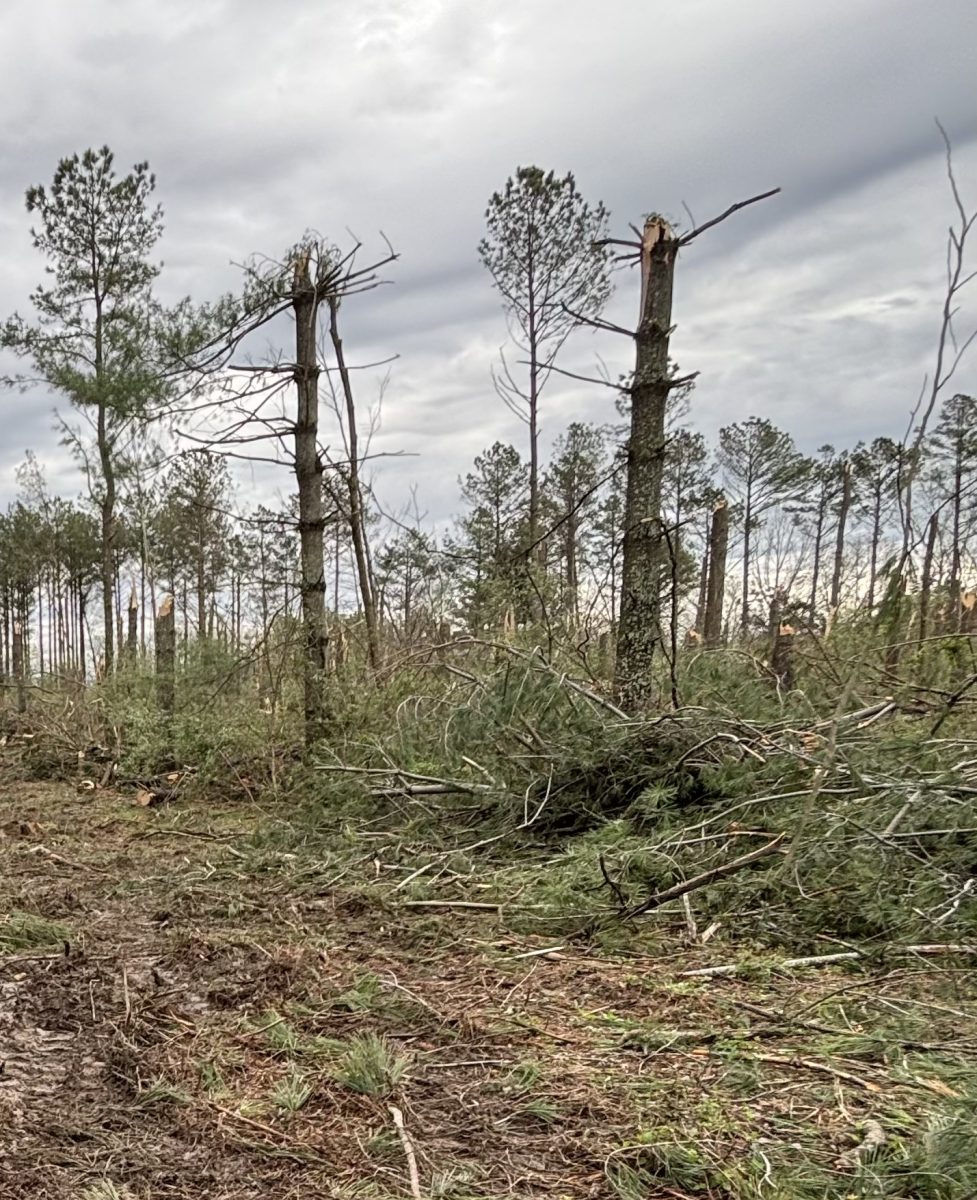Loved ones wait for trial on SIUC student’s death
June 23, 2004
20-year-old journalism major killed in December car crash
Debbie McKenzie will never forget the night of Dec. 28.
It was the night her only daughter, Ayesha Judkins, was killed in a car crash on the south side of Chicago and a night McKenzie said would stay with her for the rest of her life.
Advertisement
“Ayesha was my only daughter, and she was my best friend,” McKenzie said. “She was a beautiful, young lady inside and out. It’s a loss that’s hard to put into words.”
Nearly six months after the death of Judkins, a 20-year-old journalism student at SIUC, McKenzie is still coping with her loss and is reminded of the tragic night each time she walks through the doors of Chicago courtrooms.
McKenzie has attended eight of the nine hearings of Gustavo Garibay Jr., the man charged in connection with Judkins’ death, and said the long court process has been frustrating.
“I have good days and bad days, and as time goes on, it gets better,” McKenzie said. “But then I go to court, and it sets me back even more and brings back everything from that night all over again.”
Garibay is charged with aggravated driving under the influence of alcohol and reckless homicide, both of which are Class 2 felonies, for his involvement in Judkins’ death.
According to Chicago Police reports, Garibay had a blood-alchol content of .227, nearly three times the legal limit, when his sport-utility vehicle crashed into the back of the stopped 1996 Saturn that was carrying Judkins and fellow SIUC student Latosha Davis.
Police said Garibay was chasing another vehicle south on Commercial Avenue at speeds between 65 mph and 80 mph before reaching 91st Street.
Advertisement*
When Garibay’s vehicle reached the intersection, it hit the back of the Saturn that was stopped at a red light.
The SUV then hit the Saturn again in the passenger side of the car and struck Judkins, who was sitting in the front passenger seat.
When Garibay tried to drive from the scene, his vehicle hit a nearby utility pole and flipped.
During an early February hearing, Garibay plead not guilty to both charges.
McKenzie said she was not surprised Garibay pleaded not guilty, but was shocked to find out he was released from the Cook County Jail on bond.
“I just don’t understand. He has a record, and they gave him more time,” McKenzie said. “I hope he will see time for what he did because I don’t want him to go out and hurt someone else’s loved one.”
Talia Gilmore, a senior in radio-television and friend of Judkins, agreed with McKenzie and said Garibay should not have been allowed to roam the streets and be able to do it again.
“Being mad isn’t going to bring back my friend,” Gilmore said. “I just hope he gets what he deserves.”
A Class 2 felony usually results in a three-to-seven-year prison sentence and a maximum fine of $25,000 for each charge. According to Jerry Lawrence, a Cook County State’s Attorney’s Office spokesman, Garibay could face a longer sentence for each charge due to prior driving convictions.
Lawrence said instead of the typical charges that come with a Class 2 felony conviction, Garibay could see a 12-year prison sentence in an Illinois correctional facility for each of the two charges.
However, Lawrence said “it is impossible to say” how much longer before a trial date would be set and said it is not uncommon for such cases to take more than one year before the trial would begin.
McKenzie said she was informed the case could potentially take up to two years and hopes it comes sooner than later.
“I don’t even think it should go this long. I don’t understand why they have to put someone through this,” McKenzie said. “I see things like this happen on television and in the paper, but it’s hard to understand until it happens to you.”
McKenzie said she would see this case until the end because she knows Judkins would have done the same for her.
“I could see her saying ‘Momma, make sure he pays for this’ and that is what I am going to do,” McKenzie said.
Gilmore, who is also a member of the National Association of Black Journalists, said the organization, which Judkins was a member of, tried to help out McKenzie in anyway they could.
“We raised over $1,000 to give to Ayesha’s mom for a headstone,” Gilmore said. “And our long-term goal is to put a plaque and tree in Ayesha’s memory outside of the Communication Building.”
Gilmore said the organization hopes to establish a scholarship program in the near future.
McKenzie said she was overjoyed and thankful to her daughter’s friends for helping with the headstone’s cost and had the phrase ‘donated by NABJ’ put on Judkins’ headstone.
McKenzie said the support from friends, family and one woman involved in the Alliance Against Intoxicated Motorists has helped her cope with Judkins death, but said once Garibay’s trial is complete, she would feel better.
“I just want this done and justice to be done for Ayesha, so I can finally put her to rest,” she said.
Advertisement








